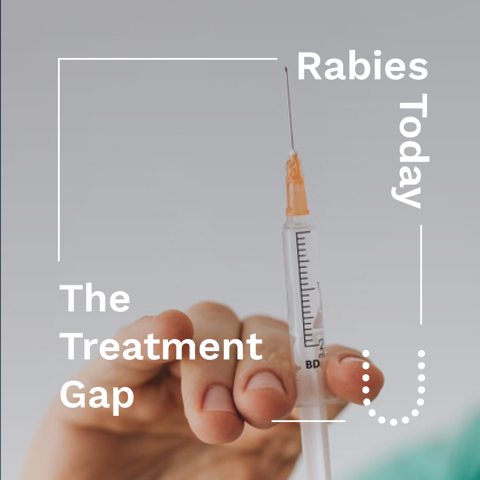Description
Rabies Today is brought to you by the United Against Rabies Forum. Each month we will look at a key challenge surrounding rabies control and discuss potential solutions with practitioners and experts from around the world.
Season 2
Episode 8: All About Awareness
In the run up to World Rabies Day, we focus on the urgent need to ramp up public and health worker knowledge in both endemic and rabies-free countries. Speakers share their stories about health system failures and personal lack of awareness, as well as sharing new ideas for rabies education. These include improved health worker training and public education everywhere, the World Rabies Day Awards, a 28-day countdown to World Rabies Day and a new series of rabies education films in multiple languages. WHO’s rabies lead Dr Bernadette Abela also reflects on the changing funding environment for rabies control and urges us all to ‘stay creative’.
Hosted by Professor Katie Hampson, University of Glasgow with Robyn Thomson, British nurse and daughter of Yvonne Ford who died after being scratched by a puppy in Morocco; Kerenza Vlastou, Community and Outreach Director, GARC; Sarah Beeching, Health Economist, Oshun Partnership and Adviser to United Against Rabies; Dr Bernadette Abela, Rabies Lead, Malaria and NTD team, WHO; Dr James Ngatia, Mpala Research Project, Kenya; Dr Madi Savodogo, National Director of Animal Health, Burkina Faso.
Listen to Episode 8: All About Awareness
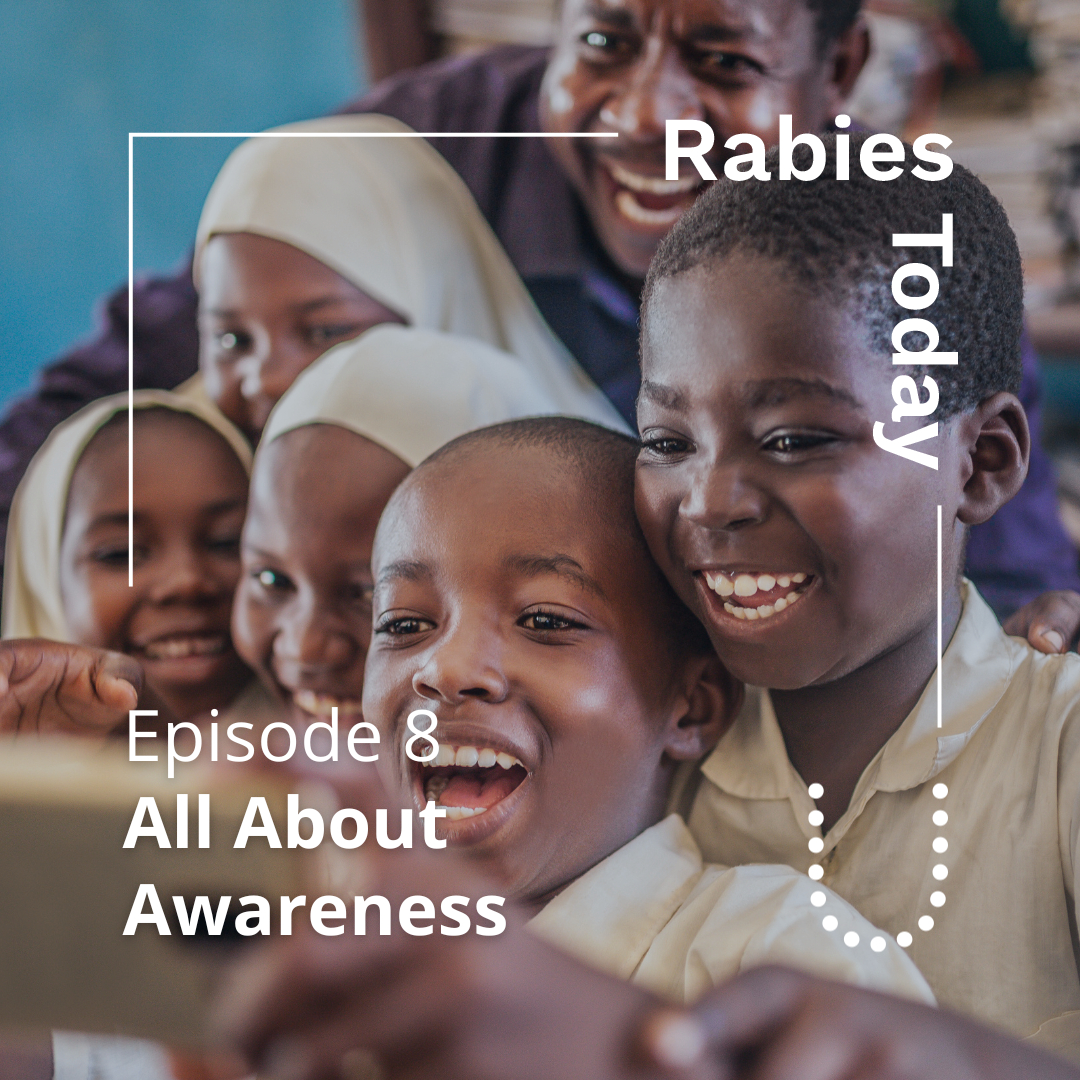
Episode 7: Ukraine, Tanzania and new tools and resources
In Ukraine, rabies is rising among abandoned pets, and could spread to surrounding countries in Europe. We hear an urgent call for mass vaccination and sterilisation of dogs to avert catastrophe.
In Tanzania, international endorsement of the national rabies control plan is helping to secure more funding. And we are reminded of the critical importance of immediate and thorough wound-washing in any suspected rabies case.
Unicef is keen to increase rabies awareness among children, families and health workers at community level and we introduce some practical new tools and resources from WHO to assist countries in their roll out of human rabies vaccines for PEP.
Hosted by Professor Katie Hampson from the University of Glasgow with Dan Fine, documentary producer of “War Tails”, Dr Samwel Mngumi of Ministry of Livestock and Fisheries in Tanzania, Ida-Marie Ameda, Unicef’s Global Lead for Malaria and NTDs, and Dr Katie Corridan, World Health Organization.
Listen to Episode 7: Ukraine, Tanzania and new tools and resources
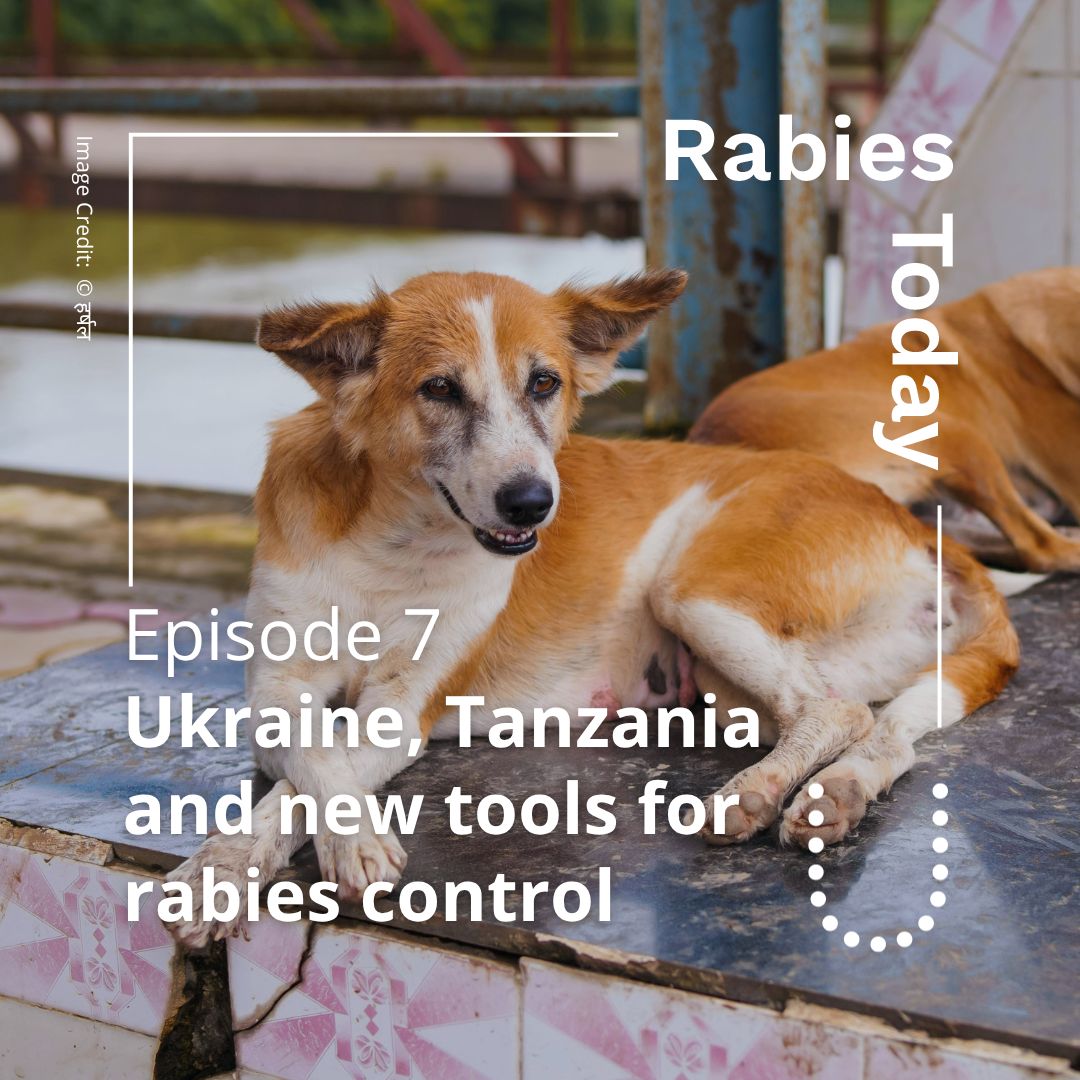
Episode 6: Rabies in Conflict Zones
The battle against rabies is complex and difficult. But imagine having to fight rabies in a country at war. In this episode, we meet three people working in enormously challenging circumstances in Afghanistan, South Sudan and Ukraine.
From Ukraine we learn that soldiers on the front line are being put at risk of rabies as abandoned animals reproduce and remain unvaccinated. In Afghanistan, international isolation makes vaccine procurement extremely difficult. And in South Sudan internal conflict further complicates rabies control efforts hindered by under-development.
Join Professor Katie Hampson and her guests:
Olha Vasylyshyn, Adoption Counsellor, Zoo Patrol Ukraine
Dr Jalil Mohammadzai, Afghanistan Country Director, Mayhew International
Dr Kevin Miheso, South Sudan Country Director, VSF Suisse
Listen to Episode 6: Rabies in Conflict Zones
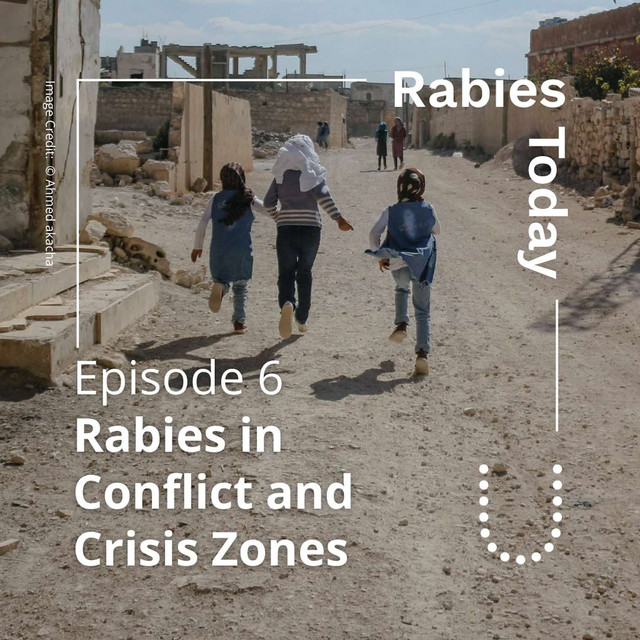
Episode 5: Don’t wait. Do Something.
South African rabies expert Kevin Le Roux told colleages at the United Against Rabies Forum in Cape Town that rabies data will never be perfect, so what is vital is to act to control the disease and save lives. Meanwhile Dr Joseph Nkhoma of Malawi points out that lack of data is a huge impediment to getting political and financial support for rabies control.
Another hot topic at the UAR forum was the economic costs of rabies to lives and livelihoods – and who should pay for dog vaccination: ministries of health, or ministries of agriculture?
Rabies Today is hosted by Professor Katie Hampson of the University of Glasgow.
Speakers: Kevin Le Roux, Chair, National Rabies Advisory Group, South Africa; Dr Joseph Nkhoma, National Rabies Focal Point, Ministry of Agriculture, Malawi; Ida-Marie Ameda, Global Malaria and NTD Adviser, Unicef; Professor James Wabacha, Animal Health Expert Consultant, AU IBAR; Dr Kavosa Mudoga, Action for Protection of Animals Africa; Dr Ryan Wallace, US Centers for Disease Control.
With thanks also to Dr Naseem Salahuddin, Pakistan; Dr Kanana Kimonya, Kenya; Dr Dereje, Ethiopia; Dr John Gokwisa, Tanzania; Dr Thierry Ouattara, Cote d’Ivoire and Dr Simbarashe Mabaya, Gavi.
Listen to Episode 5: Don’t Wait. Do Something.
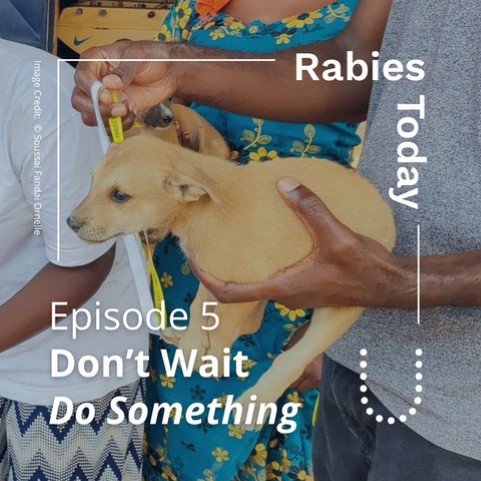
Episode 4: World Rabies Day – Working with Communities
World Rabies Day is September 28th, an important day for community mobilization around dog vaccination and raising public awareness. But what’s really successful when working with communities? And what is happening at national and international levels around World Rabies Day?
This episode introduces the new Chair of United Against Rabies, Dr Lucille Blumberg, and also looks forward to the annual meeting of United Against Rabies partners in Cape Town.
Rabies Today is hosted by Professor Katie Hampson of the University of Glasgow.
Guests in this episode, “Rabies in Africa” are Bosco Chinkonda, PhD Research Student, Malawi/UK; Dr Terence Scott, Director of Programs, Global Alliance for Rabies Control; Dr Lucille Blumberg, Chair, United Against Rabies Steering Group and National Institute for Communicable Diseases, South Africa.
Listen to Episode 4: World Rabies Day – Working with Communities
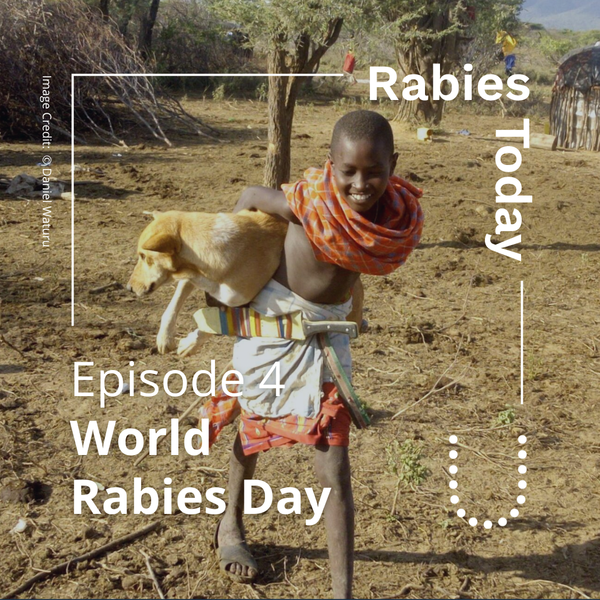
Episode 3: Rabies in Africa
In Africa, it’s estimated that rabies still kills at least 25,000 people each year, many of them children. It also kills millions of livestock animals at great cost to farming and pastoral communities.
In this episode, Katie Hampson reports from northern Tanzania where there has been some progress in bringing rabies under control, but also meets a family whose young son has recently been infected.
Across Africa, those most vulnerable to rabies live in remote and rural areas, where dog vaccination rates are low, awareness of the disease is limited, and human rabies vaccines for PEP are often unavailable.
In this episode we will hear how dog meat is linked to rabies in Nigeria, we’ll have the latest from South Africa on rabies in Cape Fur Seals, and we’ll hear about plans for a continent-wide rabies control strategy.
Rabies Today is hosted by Professor Katie Hampson of the University of Glasgow.
Guests in this episode, “Rabies in Africa” are Dr Huyam Salih, Director, AU-Inter-African Bureau of Animal Resources; Dr Christian Tetteh Duamor, Rabies Elimination Project, Tanzania; Dr Grace Kia, Lecturer and founder of War Against Rabies foundation, Nigeria; and Dr Lesley van Helden, State Veterinary Service, Western Cape, South Africa.
Listen to Episode 3: Rabies in Africa
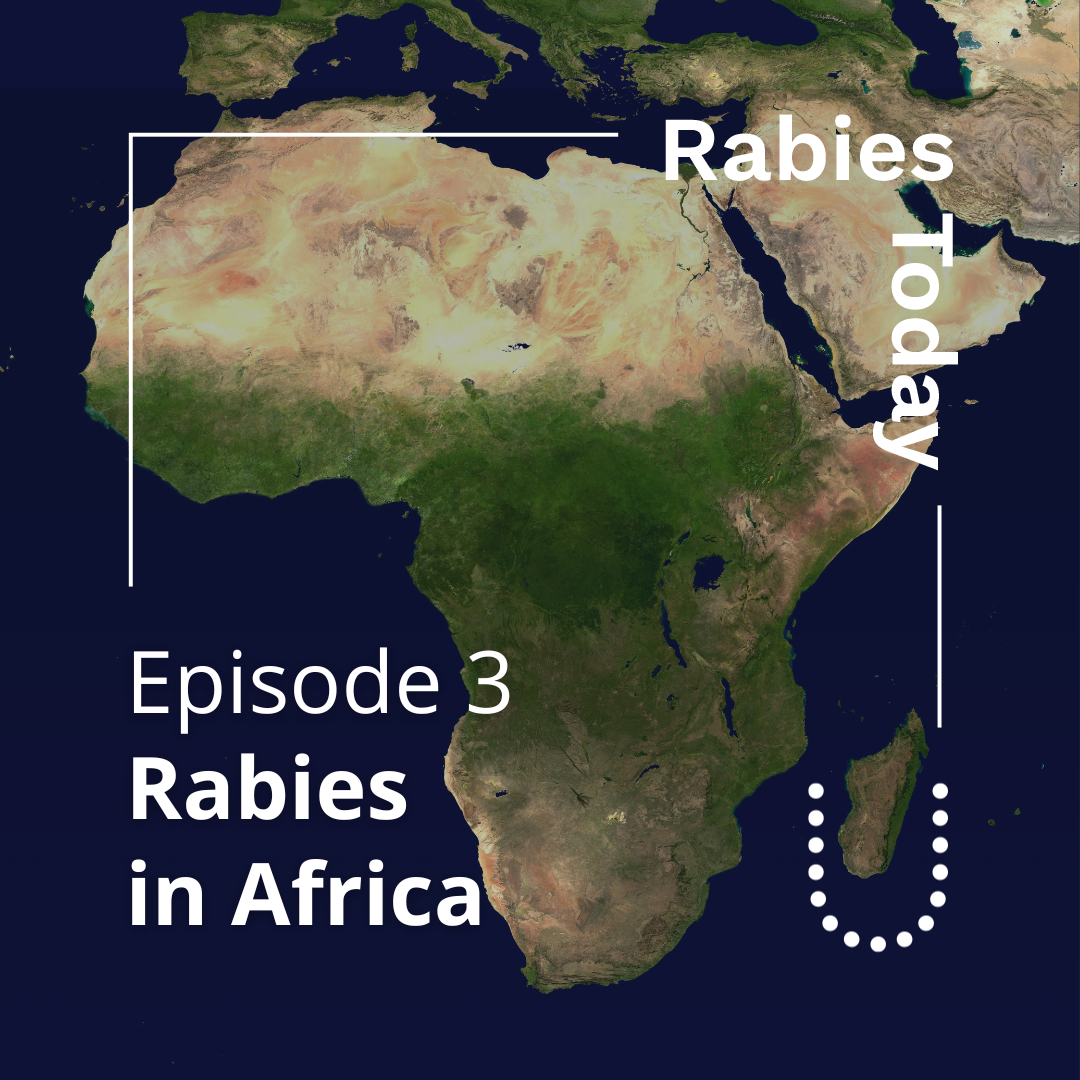
Episode 2: Gavi’s Vaccine Rollout
Human rabies vaccines for PEP save lives by stopping the deadly virus reaching the central nervous system. But these lifesaving vaccines are often unavailable or unaffordable, especially in marginalized communities in Asia and Africa where rabies is still a significant public health problem.
On 12 June 2024, Gavi begins the rollout of a new program to help over 50 countries to access human rabies vaccines, potentially saving hundreds of thousands of lives and catalyzing more sustainable approaches to rabies elimination. This episode explains Gavi’s offer, what it aims to achieve and what countries need to do to qualify for support.
Join Professor Katie Hampson of Glasgow University and her guests for a new episode of Rabies Today. Her guests are Dr Simbarashe Mabaya, Senior Technical Adviser, Gavi; Dr Bernadette Abela, Global Program for NTDs, WHO; Dr Marybeth Maritim, Senior Lecturer at University of Nairobi; Consultant Physician in Infectious and Zoonotic Diseases and NTDs; Chair Rabies Working Group of Kenya’s National Immunisation Technical Advisory Group, Kenitag; and Prof Bassirou Bonfoh, Veterinary Epidemiologist, Senior Scientist at Swiss Centre of Scientific Research in Côte d’Ivoire; Director Afrique One/ One Health.
Listen to Episode 2: Gavi’s Vaccine Rollout
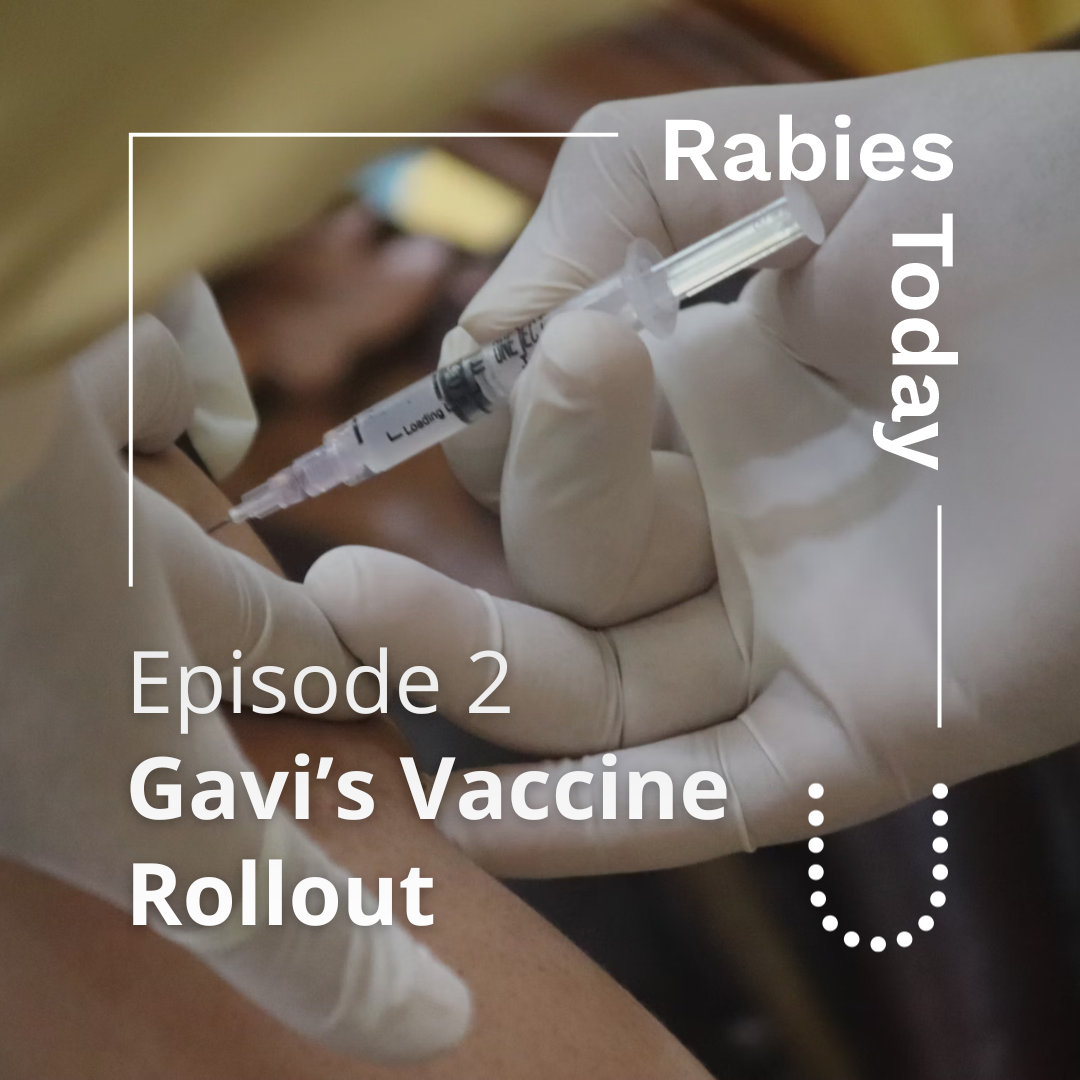
Episode 1: Rabies in South East Asia
Dog-mediated rabies is on the rise in Southeast Asia, including in areas that were previously rabies free. The impact of the pandemic is still being felt, dog vaccination rates remain very low, funding is limited and access to human rabies vaccines for PEP is a challenge. The dog meat trade also contributes to the spread of the disease. Will a new ASEAN rabies strategy help to to turn the tide and stop human deaths from canine rabies by 2030?
Join Professor Katie Hampson of Glasgow University and her guests for a new episode of Rabies Today. Her guests are Dr Pebi Purwo Suseno, Senior Veterinary Officer, Directorate of Animal Health, Ministry of Agriculture, Indonesia, Dr Mary Elizabeth (Betsy) Miranda, public health veterinarian from the Philippine and Lola Webber, Consultant, Humane Society International, with a special contribution from Chonnikarn Phochanakij (Pom) from 4 Paws International in Thailand.
Listen to Episode 1: Rabies in South East Asia
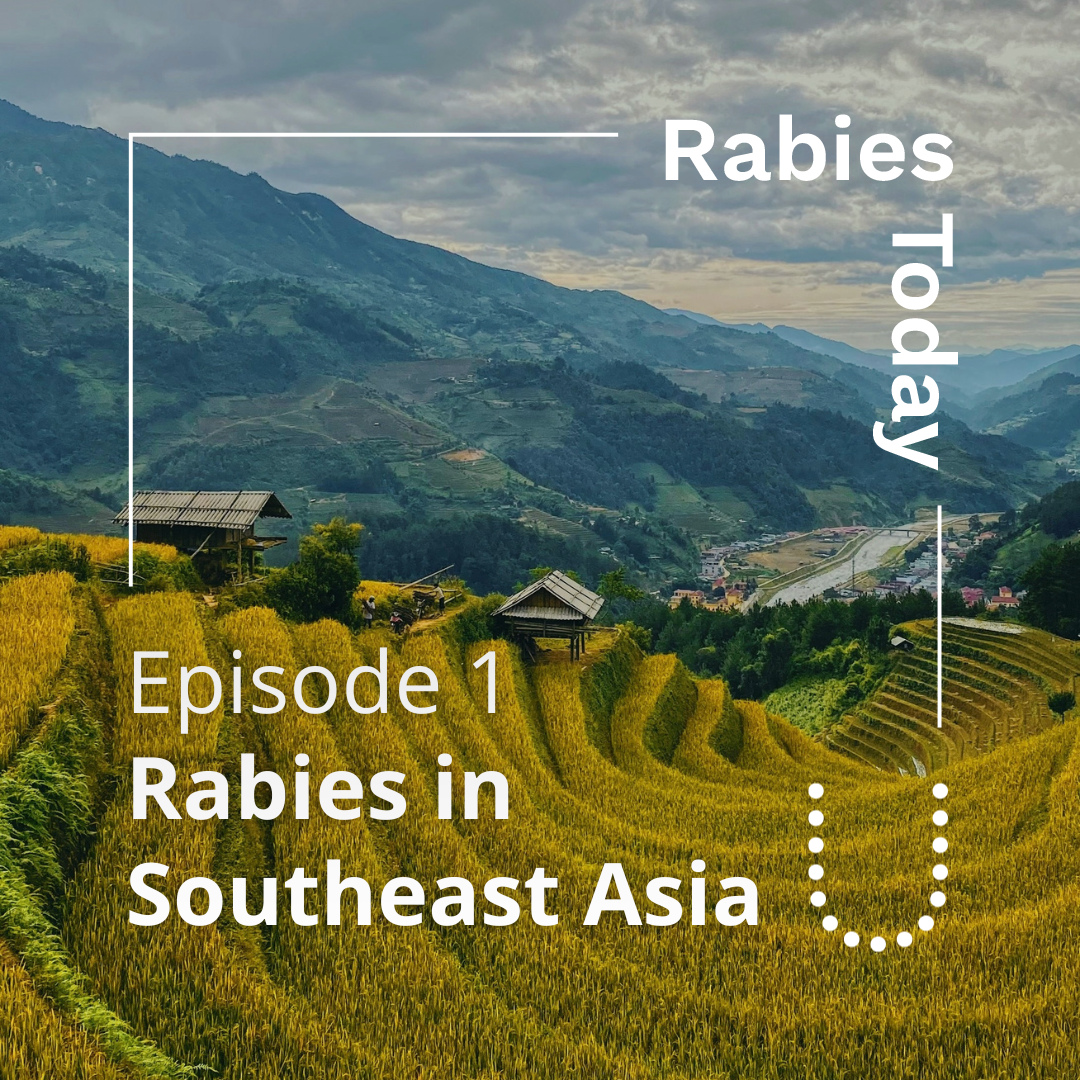
Season 1
Episode 6: Zero by 30: Dead or Alive?
The Global Strategic Plan to achieve zero human deaths from dog mediated rabies by 2030 was published in 2018, well before the pandemic. With just 7 years to go, can “Zero by 30” still be achieved? What progress has been made since the goal was set? Does it need to be extended? Join our expert speakers as they map out priorities for the coming years.
With Dr Charles Bebay, Regional Head, Emergency Centre for Transboundary Animal Diseases, Food and Agriculture Organisation, Nairobi; Dr Gregorio Torres, Head of Science, World Organisation for Animal Health, Paris; Dr Bernadette Abela, Head of Neglected Zoonotic Diseases and Snakebite, Global Program for NTDs, World Health Organization, Geneva.
Listen to Episode 6: Zero by 30: Dead or Alive?
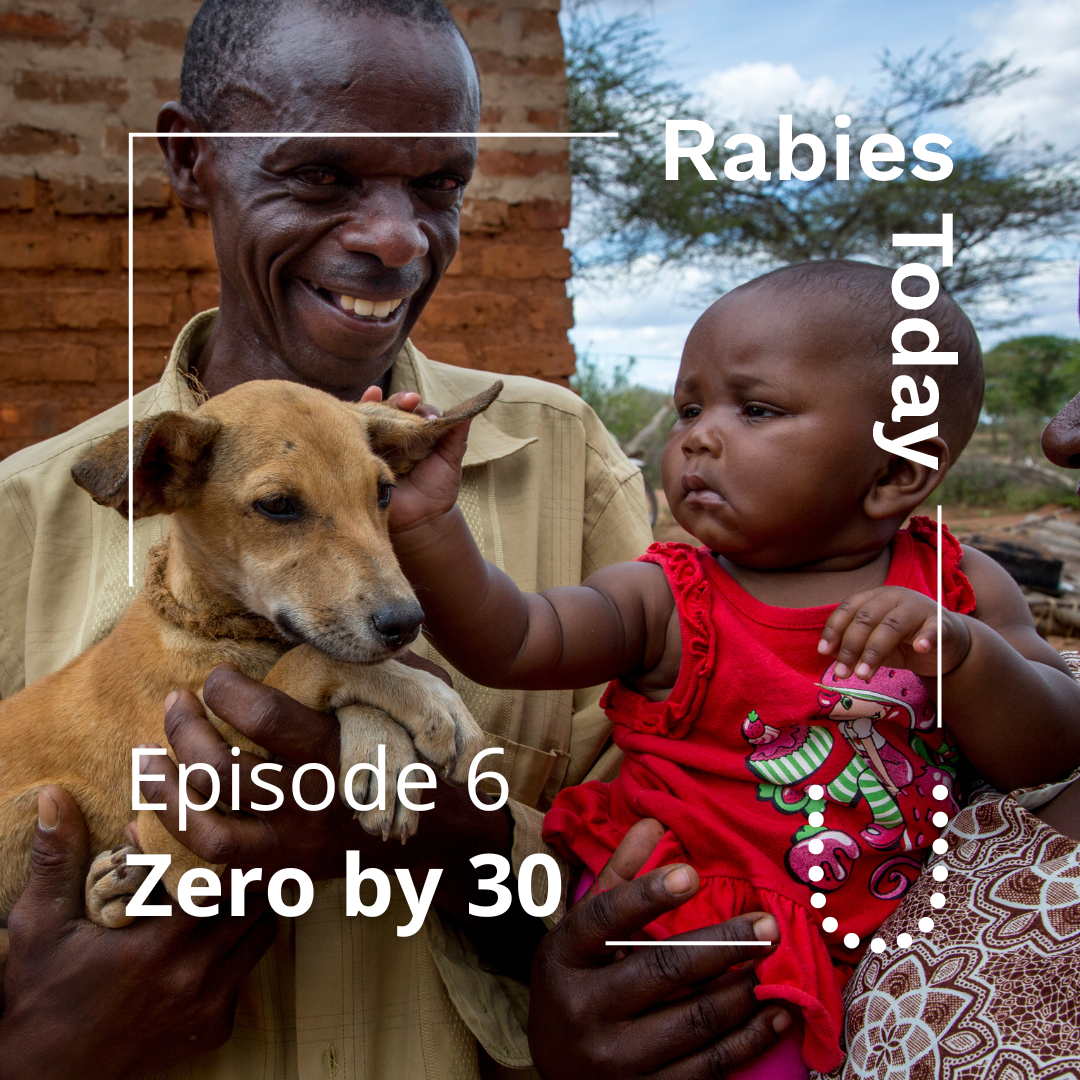
Episode 5: Rabies, dogs and wildlife
In the Americas, canine rabies variants have infected several wildlife species which now maintain independent cycles of transmission. In Namibia, kudu have emerged as unlikely species to be especially vulnerable to rabies transmission within the herd. Join Professor Katie Hampson and her guests in a fascinating conversation about rabies, dogs and wildlife and what that means for efforts to achieve Zero by 30.
With Dr Rauna Athingo, Chief Veterinarian, Animal Disease Control, North-West subdivision, Namibia, Cassie Boutelle, Epidemiologist, Pox Virus and Rabies Branch, US CDC and Professor Jane Megid, Faculty of Veterinary Medicine and Animal Science, UNESP, Brazil
Listen to Episode 5: Rabies, dogs and wildlife
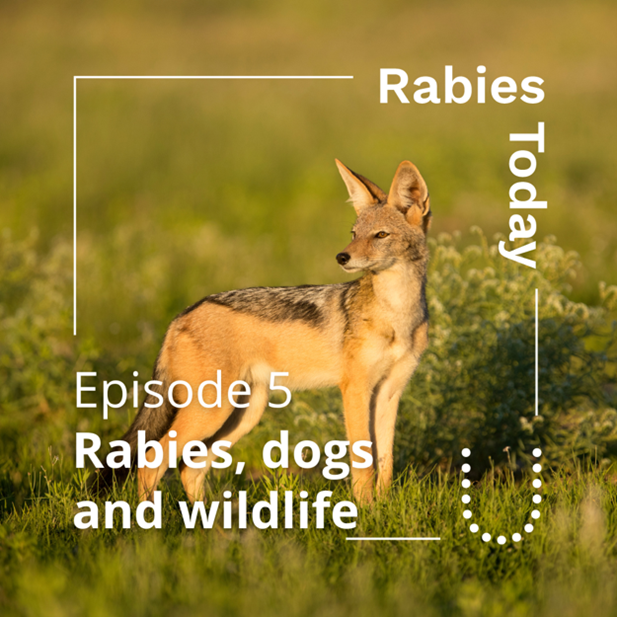
Episode 4: Fight Rabies, Go Local
Local engagement is essential to successful rabies control. Professor Katie Hampson and guests discuss strategies they use to engage local governments and communities – and some of the challenges they face in coordinating effective rabies control efforts.
With Dr Kenneth Chawinga, Senior Inspectorate and Regulatory Officer of Veterinary Public Health, Lusaka, Zambia, Dr Rey del Napoles, Division Chief, Animal Care and Disease Control, Quezon City, The Philippines and Dr Merry Ferdinandes Wain, Director, JAAN Domestic (Jakarta Animal Aid Network), Indonesia.
Listen to Episode 4: ‘Fight Rabies, Go Local’
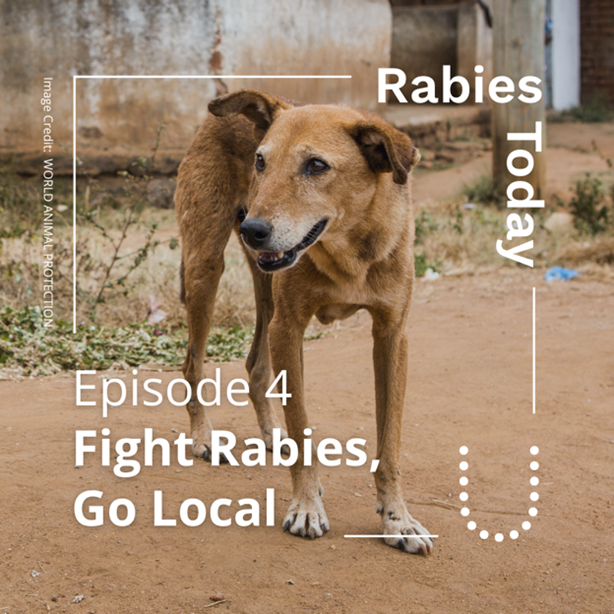
Episode 3: Dogs, Dogs, Dogs
In ‘Dogs Dogs Dogs’, we look at the important links between rabies control and dog population management, different attitudes to free roaming dogs in Asia and Africa, and some of the challenges in improving dog vaccination, community surveillance and reporting of rabid dogs.
Join host Professor Katie Hampson from the University of Glasgow with her guests, Dr Gowri Yale from Mission Rabies, Dr Thumbi Mwangi from the University of Nairobi and Dr Elly Hiby from the ICAM Coalition. With an update from Dr Bernadette Abela of WHO on Gavi’s decision to roll out investment in rabies vaccines.
Listen to Episode 3: ‘Dogs Dogs Dogs’
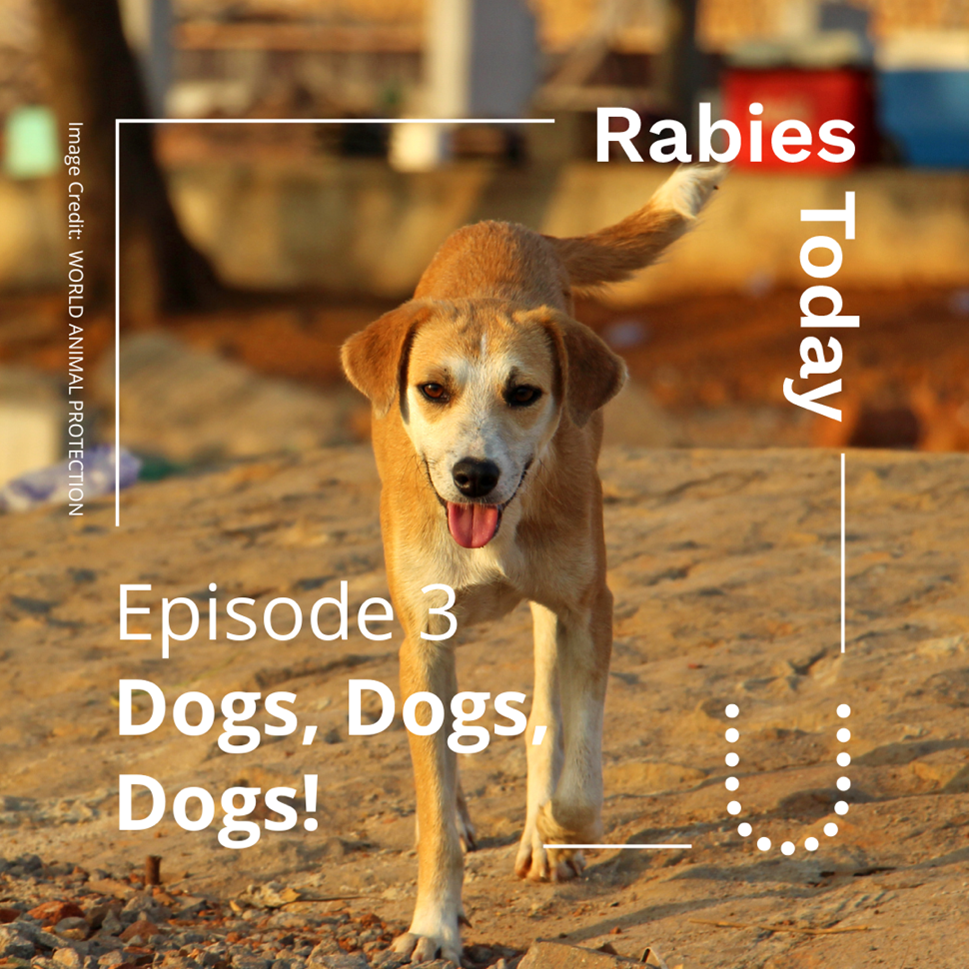
Episode 2: Reporting Rabies
In ’Reporting Rabies’, we look at why so few cases of human rabies are recorded in global and national data sets. What does that mean for countries trying to control the disease, and for people at risk? And, as always, we’ll be discussing solutions, including United Against Rabies’ guidance on Minimum Data Elements, available here.
Join host Professor Katie Hampson with guests, Dr Ryan Wallace, Rabies lead at US Centers for Disease Control, Dr Moses Djimatey, Deputy Director of Public Health in the NE Region of Ghana and Dr Ashwath Narayana, immediate past President of the Association for Prevention and Control of Rabies in India.
Listen to Episode 2: ‘Reporting Rabies’
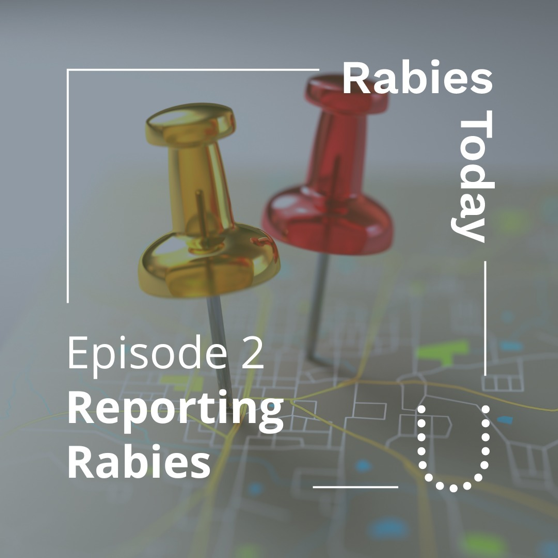
Episode 1: The Treatment Gap
‘The Treatment Gap’ looks at unequal global access to life-saving rabies vaccines. Join Katie Hampson as she looks at the lethal consequences of vaccine shortages and how to address them, including the potential investment by Gavi, the Vaccine Alliance, in human rabies vaccines. Guests are Dr Bernadette Abela from WHO, Dr Madi Savadogo, Director of Animal Health in Burkina Faso and Dr Hervé Bourhy of Institut Pasteur.
Listen to Episode 1: ‘The Treatment Gap’
